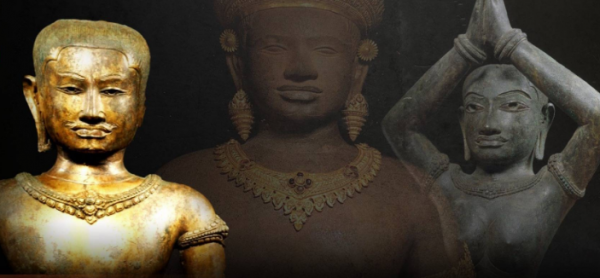Thailand’s path to a democratic charter becoming vicious circle

The push to change the junta-sponsored Constitution is back at square one after the amendment bill paving the way for a charter rewrite was shot down in its final reading last month.
This week will see political parties propose draft bills to amend the charter chapter by chapter, which should be easier and faster than rewriting the entire Constitution.
The biggest hurdle now is last month’s Constitutional Court ruling, which said a national referendum must be held first to see if the public actually wants a new charter. It also ruled that a second public referendum must be held on the completed charter draft.
However, the referendum draft bill’s fate is still in the balance. The bill is currently being scrutinised by an ad-hoc panel before it is returned to Parliament for votes in the second and third readings.
The all-powerful Senate
The youth-led anti-establishment movement has demanded a new and more democratic charter, and the end of the junta-appointed Senate’s power to vote for a prime minister, seen as a means for the junta to extend its rule.
It’s clear, however, that the ruling Palang Pracharath Party and Senate will oppose any change to senators’ powers as enshrined in Article 272 of the Constitution. The change will be proposed by the three other ruling coalition parties – Bhumjaithai, the Democrats and Chartthaipattana – as well as opposition parties Pheu Thai and Kao Klai, along with civic networks.
Will Samakee Prachachon forum gain momentum?
Veteran democracy advocate Jatuporn Prompan has announced a new political forum, aimed at getting Thailand’s Prime Minister Gen Prayut Chan-o-cha to step down. The event, schedule for Sunday afternoon, is a collaboration between activists who fought against an undemocratic regime in power in 1992, which ended in a coup following a massacre, known as Black May.
Palang Pracharath deputy leader Paiboon Nititawan declared last week that such changes would be unsuccessful and only lead to conflict. The ruling party will submit charter amendment bills that include five key points but leave the Senate untouched. The five points have nothing to do with the demands made by the anti-establishment groups.
The three coalition partners and opposition parties are also likely to propose amending Article 256. The article stipulates that any charter amendment requires the support of more than half of Parliament, including at least a third (84) of the 250 senators in the first and third reading.
The Senate vote requirement was one of the main reasons why the charter amendment bill failed last month. Coalition partners and opposition parties are now trying to remove this requirement in order to create a path to charter change.
Meanwhile, the push for change to Thailand’s supreme law is gaining new momentum outside Parliament.
The “Re-Solution: It’s Time for a New Constitution” group, comprising former Democrat Party New Dem faction member Parit “Itim” Wacharasindhu, Piyabutr Saengkanokkul of the Progressive Movement, the opposition Kao Klai party and rights NGO iLaw, will launch the “Your Signature to Uproot the Prayut Regime” campaign on Tuesday (April 6). The aim is to gather a million signatures in support of charter amendments.
The campaign is seeking four changes, namely abolition of the junta-sponsored Senate, abolition and re-establishment of reformed independent agencies such as the Constitutional Court, scrapping of the 20-year national strategy, and wiping out the undemocratic legacy of the 2014 coup.
Piyabutr argues that the junta-appointed senators and charter court are the main obstacles to charter amendment since they will only allow changes that benefit them.
Impossible task at hand

Though it may be an easier path to charter change, observers say creating a democratic Constitution article-by-article may be impossible.
Switching off the Senate’s power and abolishing the current charter court are unlikely to win majority support in Parliament, especially from the 84 senators required by the current Constitution, said Stithorn Thananithichot, a political scientist from King Prajadhipok’s Institute.
“The door to such changes is almost shut. Not a single senator will vote to reduce or end their own power or to terminate the court [which has historically ruled in favour of senators]” Stithorn said. “Hence, political conflicts will remain.”
Seeking changes to Article 256 will likely face major opposition from the ruling Palang Pracharath Party and senators as it requires a public referendum.
“The party and Senate may join forces to block any changes that require a referendum,” he added.
Stithorn speculated that the only change possible would be to the current voting system, as this could benefit both sides of the political divide. Both the government and the opposition are looking to shift from the current single-ballot system for constituency and party-list MPs to two separate ballots.
By Thai PBS World’s Political Desk






